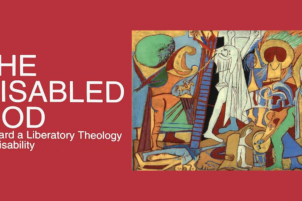Short film series explores the intersection of disability and prayer in the Jewish community
Los Angeles, April 9, 2021 – Samantha Elisofon, a talented actress who lives with autism, stars in her own segment of “What Do You Pray For?” The film was made by Ben Rosloff, a talented emerging filmmaker on the Autism spectrum who serves as a Jewish Inclusion Fellow in RespectAbility’s National Leadership Program.
”What Do You Pray For?” is a series of short interviews of Jews with disabilities who tell viewers in their own words what they pray for and what prayer means to them. The project features Jews with various disabilities from across the United States, with a myriad of different connections to their Jewish identity.
The series focuses on the universal nature and themes of prayer, as well as the hopes and dreams of people with disabilities. The interviews reveal the need for inclusion and a connection to the community. All interviewees provided valuable insights on their disability experience, understanding it to be an integral part of themselves, presenting challenges and opportunities.
Samantha Elisofon is an award winning actress and singer who co-starred in the award-winning film Keep the Change, a romantic comedy that earned her a nomination for best actress at the 2017 Tribeca Film Festival. Diagnosed with autism as a toddler, Elisofon confronted dire predictions and negative stereotypes. Her life is the subject of the memoir, My Picture Perfect Family: What Happens When One Twin Has Autism. Written by her mother, Marguerite Elisofon, this book charts her family’s journey raising herself and her twin brother. Elisofon also is a member of EPIC Players, a neuro-inclusive theater company for talented performers with and without disabilities. She also performs with DreamStreet Theatre Company and graduated from Pace University.
A transcript of the film is below:
Benjamin Rosloff: My name is Benjamin Rosloff, and I am a filmmaker, editor, and storyteller. And I am living with autism. There are different types of prayers; prayers that praise God, prayers that thank God, prayers that ask for forgiveness, and prayers that ask God for something. There are prayers that are memorized that we recite or sing to familiar melodies. Asking questions is how we learn about people’s hopes and dreams and what kind of world they want to live in.
Hello, this is Samantha Elisofon. She is living with autism, she is a member of EPIC Players, a neurodiverse inclusive theater company, and I want to thank you for letting me interview you today.
Samantha Elisofon: Oh no worries Ben, it’s always my pleasure, anytime, and it’s so wonderful being here today.
Rosloff: Do you pray?
Elisofon: Yes. I pray for this whole pandemic to end, hopefully soon. I pray for a mix-and-match of so many things, and a more highly personal level, catching up in an affection with other close friends, loved ones, relatives, having a boyfriend since I’m still single.
Rosloff: Do you recite prayers that you have learned or memorized, or do you have personal prayers?
Elisofon: Honestly, more personal prayers. When I reflect on how my day went, I meditate. Yoga prayers when I do my workout routinely activities like on a daily basis, it’s always personal stuff.
Rosloff: Is your disability something you refer to in your prayers?
Elisofon: If it’s someone I really know really well, like I’m really close to, like with you, or a friend or someone I work really closely, like a teacher from class, a mentor, a director, and then yeah, I would disclose what it is, I would disclose my disability, that I have autism, but not everyone around me, it just depends on the person.
Rosloff: How does praying make you feel?
Elisofon: It makes me feel really soothed and relaxed, like personally, prayers what I do in my daily routinely, practices. It just makes me feel so relaxed, it relaxes my whole body. It really releases all the tensions in my body.
Rosloff: Do you think people with disabilities prayers are different than prayers of non-disabled people?
Elisofon: It really depends on the person than how you identify them. It depends on how they identify themselves; they have personal, some have a mix-in matchable personal, and prayers they practice that they’re very observant. Some are not as observant, some are more observant than others, some are less observant.
Rosloff: What do you pray for?
Elisofon: I’m praying for this pandemic to end, the sooner the better. I’m praying for us all to eventually get vaccinated with COVID-19. I’m praying that we all go back to our normal work with you doing your work in person again, and I go back to my public schools, and working with small children with disabilities.
Rosloff: Judaism encourages questions. It is how we learn, how we grow, and how we gain an understanding of ourselves, and our relationship to God.
The individuals featured in the “What Do You Pray For” series include:
- Erika Abbott: Writer / Award-Winning Poet
- Justin Borses: Former College Student and employee at Moorpark College
- Lee Chernotsky: Founder and CEO, ROSIES Foundation
- Samantha Elisofon: Award-Winning Actress (“Keep the Change”) and member of EPIC Players, A Neuro-inclusive Theater Company in Brooklyn
- Alex Howard: Entertainment Media and Jewish Inclusion Fellow in RespectAbility’s National Leadership Program
- Matan Koch: Director of RespectAbility California and Jewish Leadership
- Amy Rosenfeld-Kass: Teacher from The Saul and Carole Zabar Nursery School at the JCC
- Ben Rosloff: Communications and Jewish Inclusion Fellow in RespectAbility’s National Leadership Program
- Rachel Rothstein: 4th year Rabbinical Student at the Hebrew Union College Jewish Institute of Religion
- Barry Shore: Ambassador of Joy and Successful Serial Entrepreneur
- Ari Sloan: Member of EPIC Players who is living with Autism
- Joshua Steinberg: Program Associate for RespectAbility California and Jewish Leadership
- Brendan Stern: Assistant Professor of American politics and the Executive Director of the Center for Democracy in Deaf America at Gallaudet University
- Rabbi Lauren Tuchman: Rabbi, Public Speaker, Spiritual Leader and Educator
- Blair Webb: System Change Youth Advocate at MEET THE BIZ and former Jewish Inclusion Fellow in RespectAbility’s National Leadership Program
- Aaron Wolf: Co-founder of Howling Wolf Productions and Award-winning Actor, Director, Speaker, and Activist
Rosloff, a filmmaker who is active in Jewish life and has been to Israel, grew up in Great Neck, NY and earned a BFA in Electronic Media from Long Island University. He has produced films for a variety of organizations, including his documentary short “Can I Call You?!” screened in the United States and Russia during an internship with Downtown Community Television Center. Rosloff also has co-produced, edited and screened multiple films for the United Nations. These include a film for World Autism Awareness Day, where Rosloff interviewed then-Secretary General Ban-Ki Moon, as well as “#Envision 2030” for Disability Awareness Day. Rosloff currently is looking for a job in video production and/or editing. His LinkedIn is https://www.linkedin.com/in/benjamin-rosloff-95324011a. You can reach him via Benjamin.Rosloff@gmail.com.
About RespectAbility: RespectAbility is a nonprofit organization that fights stigmas and advances opportunities so people with disabilities can fully participate in all aspects of community. Founded by members of the Jewish Funders Network, it is the world’s largest nonprofit one-stop-shop on Jewish disability inclusion. RespectAbility knows that people with disabilities and their families have the same hopes and dreams as everyone else. www.respectability.org, www.respectability.org/resources/faith-inclusion








